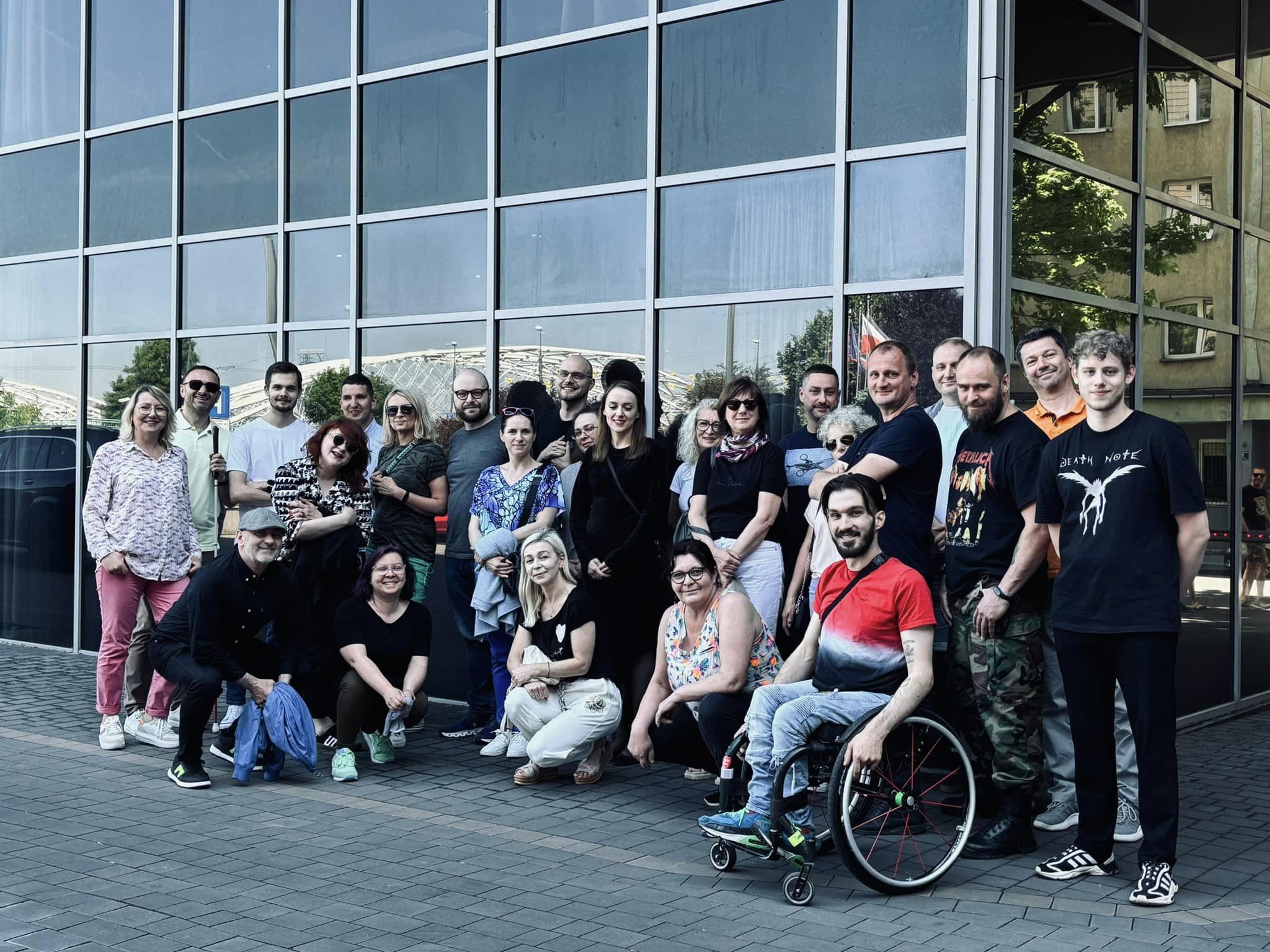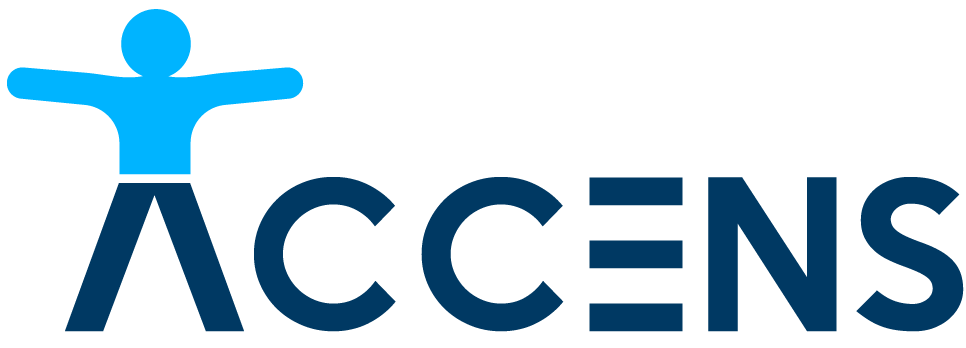Customer case: Serving Customer with Disabilities Training

Customer
Teatr Mały in Tychy and the Municipal Art Gallery Obok
Project
Serving Customers with Disabilities Training for the entire Team of the Institution
Date
May 2024
Team
Dawid Górny, Regina Mynarska, Adrian Wyka, Jakub Studziński, Szymon Laciuga, Julia Maślińska, Dariusz Drezno, Jędrzej Barancewicz
Breaking the stereotypes
Association given by participants to the word "disability" at the beginning of the training: barrier, caregiver, exclusion, closure, sadness, limitation, difficulties, fear, help, problem, adaptation, obstacles, lack of accessibility.
Result of the same exercise after 6 hours: Self-awareness, relationship, subjectivity, assistant, autonomy, help, distance, mutual trust, courage, stress, cooperation, self-esteem, trust, openness, understanding, pride, needs, humor, equality.
Challenge
The two-day training was planned by the client as an activity for the entire team of employees. So the management staff, employees dealing with the artistic program, event coordination, production, promotion, audience service and technical issues appeared.
It was the first time we had the task of conducting training for such a diverse group. At the same time, we really liked the client's idea. In institutions, it often happens that knowledge about accessibility is accumulated only by selected employees - for example, the accessibility coordinator, project coordinators, etc. This causes problems in the flow of information on this topic. It also causes disruptions in the process of implementing services such as audio description, subtitles for the deaf, interpretation into Polish sign language or easy-to-understand communication.
Such a set of participants usually poses a real challenge for trainers. The obvious hierarchy of dependencies, diverse knowledge, experience and specialization of people participating in the training stand in opposition to the principle of equality of the workshop group. The transfer of knowledge itself is also much easier in the case of more homogeneous teams.
The significant size of the group was also a challenge - there were 25 people. This requires planning various activation and interactive methods to maintain a high level of engagement.
The client also assumed that this training would be an integration trip for the entire team of employees. It took place outside the institution's headquarters, in a hotel in Krakow. The combination of an intensive training process with a relaxed atmosphere meant that the trainers had to constantly balance between the discipline of the planned plan and the sense of the group's mood.
Training tailored to the customer
Our company's Serving Customer with Disabilities training is based on several fixed assumptions. The main thing is to present the topic from the perspective of people with disabilities themselves. Therefore, individual training modules, dedicated to different ways of functioning, are conducted by different trainers. The whole is held together by a trainer with experience in different areas of this subject.
The team built in this way presents basic concepts and types of solutions appropriate to the needs of different groups.On the other hand, practical examples were adapted to the needs of our client, in this case a theatre and an art gallery. Thanks to this, participants will immediately become familiar with the practical possibilities of implementing accessibility in their institution. The second aspect of adapting the workshop to this specific group was to include examples from different departments of the organisation. Therefore, topics appeared concerning both the creation of an accessible offer (audio description, subtitles, texts easy to understand) and management, as well as the principles of direct contact with people with disabilities in the case of people responsible for serving the audience, box office, etc.
Solution
The training was held in a stationary form, in a room rented by the client in Krakow. We also used the space of the lobby and the area around the hotel.
The agenda was based on our developed scenario of Serving Customer with Disabilities training. It was modified to respond to the specific needs of the client. The modules concerning practical exercises were extended due to the size of the group.
Dawid and Adrian - presented the perspective of people with visual disabilities, talked about the principles of creating audio description and its reception. They also conducted practical exercises in the role of an assistant.
Jakub - introduced the topic of deaf people and conducted practical exercises in the basics of Polish sign language.
Julia - represented the area of intellectual disabilities and consulted easy-to-understand texts created by the participants.
Szymon - presented the perspective of people with movement disabilities and conducted practical activities in the field, demonstrating the challenges of architectural accessibility.
Regina - connected the message and moderated the discussion.
Darek and Jędrzej – given the large number of participants and the team running the classes, they supported logistics. They provided assistance for trainers with disabilities.
Results
Decision-makers expressed their willingness to implement these new procedures and offers. There was also a desire for further training – especially in relation to Polish sign language courses and audio description of works of art in the gallery.
We practiced specific verbal and non-verbal behaviours recommended by people with disabilities. We gave participants practical tools and skills to reduce the level of fear of contact with a person with a disability. Observing the participants and listening to their feedback, we were very happy to see that the group actually relaxed and opened up.
The theatre team is already planning further events available to viewers with special needs.
We have observed great interest in this type of training, which makes us very happy. Within a few weeks, the Museum of Contemporary Art in Krakow MOCAK and the Łaźnia Nowa Theatre also used our services.

Regina Mynarska
Audio description specialist
Her portfolio includes audio descriptions of several hundred objects, plays and films for major cultural institutions. Conducts training and academic courses on inclusive language, rules of contact with people with disabilities and audio description. Minister of Culture and National Heritage scholarship holder.
Curious? We would be happy to tell you more.
We regularly create audio descriptions for theater, films, help organize accessible performances and events, and provide training on serving people with disabilities.
